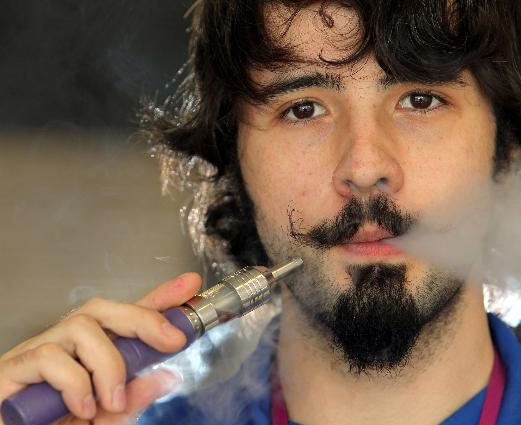Teens can easily buy e-cigarettes online, study says
Liz Szabo, USA TODAY
Teens can easily buy e-cigarettes online even though sales to minors are banned in 41 states, a new study shows.
Teens in the study were able to buy e-cigarettes online in 94% of attempts, according to a report published today in JAMA Pediatrics.
Internet retailers rejected only five out of 98 attempted purchases because of age, according to the study, in which researchers closely supervised 11 teen participants. Five attempts were blocked by parental control settings on the computers.
None of the teens were asked to show proof of age when the packages were delivered. In fact, 95% of orders were left at the doorstep, the study says.
Researchers, whose previous studies have shown that young people can easily order alcohol online, say they were careful to make sure that the study didn’t encourage kids to break the law.
Parents of the teens, ages 14 to 17, gave consent for kids to join the study and use their credit cards for the e-cigarette purchases. Researchers also cleared the study with local law enforcement.
Kids today have greater access to credit cards than many people realize, says the American Lung Association’s Erika Sward. Many teens routinely use family credit cards to buy online music, games and apps.
Previous studies have found that teens can easily buy conventional cigarettes online, Williams says. About 1 million young people reported buying tobacco online in 2012.
Although the Food and Drug Administration has proposed regulations for e-cigarettes, including a ban on selling them to minors, it has has not finalized these rules. The proposed rule does not ban Internet sales.
E-cigarettes use a battery to heat liquid nicotine into a vapor that can be inhaled. They don’t produce smoke.
E-cigarettes are increasingly popular with young people. A 2014 study found that 17% of high school seniors used e-cigarettes, more than twice as many as used conventional cigarettes.
States have been racing to regulate e-cigarettes out of concern that they will addict young people to nicotine.
North Carolina requires online retailers to verify e-cigarette customers’ ages with a government records database, says Rebecca Williams, the study’s lead author and a research associate at the University of North Carolina-Chapel Hill.
Harold Farber, a pediatric pulmonologist at Texas Children’s Hospital in Houston, says he’s not surprised by the study’s findings. He notes that e-cigarettes are marketed in ways that appeal to teens, with flavors such as grape, cotton candy and bubble gum. He’s concerned that e-cigarettes will addict young people to nicotine, which could lead them to regular tobacco.
“Ninety percent of adult smokers start before age 18,” says Farber, who was not involved in the new study. “The industry knows very well that in order to get their next generation of customers, they need to get them before they become adults. We’re seeing the e-cig industry follow the tobacco industry’s playbook.”
Without regulation by the FDA, the market for e-cigarettes is akin to the “wild West,” says Sward. She calls the study’s findings “extraordinarily troubling.”
“The status quo is benefitting the e-cigarette industry and the tobacco industry,” which has become a powerful force in the e-cigarette market, says Sward, who was not involved in the new study. “We need the Obama administration to act now to protect kids.”
A spokesman for the Smoke-Free Alternatives Trade Association, an e-cigarette industry group, says its members take the responsibility to protect kids very seriously.
“We certainly don’t want teenagers to have access to them,” says Phil Daman, president of the e-cigarette association.
R.J. Reynolds Vapor Co. does not sell e-cigarettes online, spokesman Richard Smith says. “Face-to-face sales allow for greater security against youth access to tobacco products, as clerks can check IDs,” Smith says.
Daman says his organization encourages members to use age verification software when selling e-cigarettes online.
“Implementing the use of age verification software is a reasonable, highly effective and cost-efficient way for the vapor products industry to prevent minors from making unauthorized purchases online,” Daman says.
In the new study, conducted from February 2014 to June 2014, seven of 98 online e-cigarette vendors claimed to use age verification techniques capable of complying with North Carolina law. Yet teens were able to place orders at six of those seven websites, showing that the retailer’s age verification systems didn’t work, Williams says.
“If people aren’t using age verification software, if they’re not doing what they’re supposed to be doing, there’s no excuse for it,” Daman says. “Responsible corporate citizens should be ensuring that they use this age verification software.”
http://www.usatoday.com/story/news/2015/03/02/teens-buy-e-cigarettes-online/24118331/


